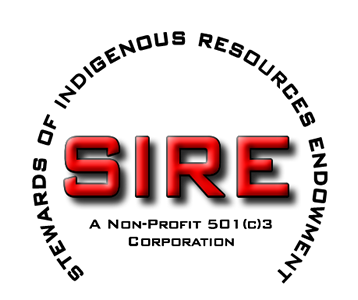







Q: Does AIPRA change the probate process for decedent’s who died before June 20, 2006?
A: Probably not. The estate must be probated under the laws that exist at the time of the decedent’s death. However, current draft of the CFSs does provide for the purchase options at probate to become effective on June 20, 2006 and to apply immediately to all estates in probate.
Q: Does AIPRA invalidate a Will executed prior to June 20, 2006?
A: No. However, if a Will gives trust assets in a way not allowed by AIPRA and the decedent dies after AIPRA’s effective date, that particular gift (devise) within the Will shall be considered invalid and AIPRA’s Federal Probate code (laws of interstate succession) will be applied.
Q: What is an allotment?
A: An allotment is a parcel of land that has been conveyed to an individual Indian by the BIA under authority of the General Allotment Act of 1887. [43 CFR 2530]. Allotment lands are held in trust by the BIA for an individual Indian or are owned by an individual in restricted status. Allotees have vested property rights, including water, grazing, timber and mineral rights.
Q: Are “public domain” allotments in the Tribes’ ceded area similar to allotments within the reservation boundaries?
A: Yes. Under Section 17 of the Act of June 25, 1910, lands owned by the U.S. but not otherwise “appropriated” could be allotted to Indian. Such allotments have the same status as allotments created from tribal land. [See also the Homestead Act of 1862]
Q: Are allotment land affected by federal probate?
A: Yes. The interest of an Indian decedent in allotment lands held in trust or restricted status can only be transferred to a devisee or legal heir through the federal probate process.
Q: What is a land “assignment”?
A: Under some Tribes’ Constitution the Tribal Council may grant a standard assignment (a temporary surface use right for Tribal lands) to a member for certain economic or home site purposes for his/her lifetime. Per BIA, doesn’t convey an ownership interest, only possessory interest.
Q: What is a land lease?
A: A land lease is a written agreement between an Indian tribe or landowners and a tenant that grants the tenant a right to use and possession of a trust parcel for a specific purpose and duration. Unlike an assignment, BIA recognizes a lease as a legal encumbrance on the title.
Q: How does a land “standard assignment” differ from a land lease through BIA?
A: Assignment of Tribal land may only be made by the Tribal Council. Lease of Tribal or individually-owned trust land are negotiated and executed pursuant to federal law and BIA regulations (25 CFR 162).
Q: Does the federal trust probate process affect Tribal land assignments?
A: No. An “assignment” is not recognized either to convey any trust ownership rights or interests and is not recorded as a legal encumbrance. Inheritance of land assignments is provided in the Tribes’ Constitution and is not a federal matter [See Johnson v. McIntosh 21 U.S. 543, 593 (1823)]
Q: Does the federal trust land probate process affect trust land leases?
A: Yes. Since a lease is a “legal encumbrance” on the land and recorded by the BIA the lease survives the transfer of trust land ownership from the decedent’s estate to the legal devisees or legal heirs.
Q: Are improvements on trust land real or personal property?
A: Under ILCA (pre AIPRA), structures built on trust lands were undefined and often treated as personal property by the courts. Under AIPRA, all homes and structures built on trust lands are now considered part of the “land” – exception if structure owner has a land lease.
Q: Are improvements on allotment land probated through Tribal or federal probate?
A: A permanent structure on trust land 100% owned by an Indian is considered part of the land itself (real property) and, therefore, subject to federal probate.
If a tenant builds an improvement on a leased portion of such an allotment, the disposition of that improvement is subject to the provisions of the lease. If silent, it belongs to the landowners.
If a tenant builds an improvement on allotment lands owned by multiple owners having undivided interests and there is no lease, the land owners all own an undivided share of the improvement.
If the tenant obtains a lease from all of the undivided owners, the tenant will be recognized as the owner of the improvements unless the lease specifies otherwise.
If an Indian obtains a home site lease on Tribal land, any improvements (house, barn, fence, etc) consistent with the lease terms are the property of the tenant. In these situations the improvements aren’t considered “real property” and are probated in Tribal Court as “personal property”.
If an Indian obtains a home site lease on any trust land and borrows funds to build improvements (home, fence, etc), ownership of the improvements is subject to any security interest (e.g. leasehold mortgage) of the lender until the loan is paid in full. Such improvements are probated through Tribal Court procedure as “personal property”.
Website development by Freer Designs